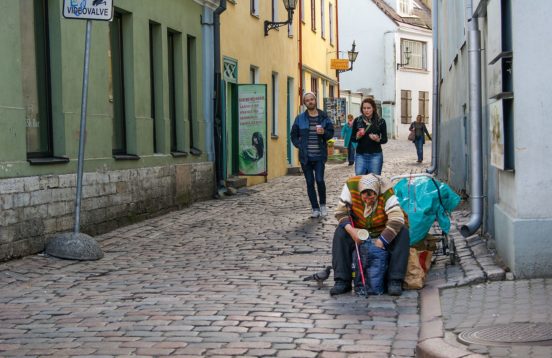If, like me, you find a measure of solace in comprehension, today’s global pandemic will likely represent a particular kind of intellectual discomfort. Though incisive perspectives are available, the geopolitical, sociological, economic and public health implications of Covid-19 are so vast and various as to frequently defy useful ad hoc analysis. The potentially cataclysmic consequences of this health emergency are intimidatingly numerous: transnational and localised, embodied and sociological, changing day by day. This coronavirus outbreak is ripples on ripples. It will take us years, if not decades, to fully come to terms with its implications on our social reality (if such a thing were even possible).
It would, however, be irresponsible to suggest that the impact of this virus was entirely unforeseeable. Prior to this outbreak, epidemics had not been assigned to the archives of history, or the mythology of Hollywood. Indeed, in recent years, SARS, Ebola and Zika all exposed the very real possibility and consequence of contagion. Better state preparedness was possible – warnings were issued and ignored. Western exceptionalism and colonial arrogance – long critiqued by any number of voices – likely prevented the UK government from learning more quickly, or more effectively, from South Korea and China. The policy of austerity wrought havoc on our national health system: its vulnerability to crisis was anticipated. There is a difference, after all, between struggling to comprehend the granularities of a specific social occurrence and knowing where the cracks are.
This is true for more than human health and infrastructure. Our social worlds are not random and arbitrarily structured, they adhere to regularities and to rules which shape individual chances and collective outcomes. As French sociologist Pierre Bourdieu observed ‘the games of life… [are] something other than simple games of chance offering at every moment the possibility of a miracle’. [1, p. 46] And of course, it is the task of sociologists and social theorists to explain these rules and regularities, as well as how they come to be, how they come to change and how they respond to pressure.
For a long time, critical social theorists, particularly feminist theorists, have argued that the logic of liberalism – a prevailing ideology within the western world – is premised on a political fiction. Put plainly, liberalism instructs that we, as human beings, are independent and unencumbered – relatively invulnerable to the vagaries of the social world, and our position in it. In turn, proponents of liberalism posit that – through ambition and endeavour – we can all sculpt out lives into whatever we desire them to be. No matter our backgrounds, or the resources immediately at our disposal, we can pull ourselves up by our bootstraps and strive. Black, white, gay, straight, woman or man – you can do it! The only thing that stands in your way, is you! If we flounder, are unsuccessful – poor and socially marginal – it is because we have failed or failed to try. If we are staggeringly affluent, it is because we have worked. We are neither victims of circumstance, nor the beneficiaries of privilege: we are masters of our fate and captains of our soul. This was the organising logic for Thatcher’s famous claim that there is ‘no such thing as society. There are individual men and women, and there are families.’
In the liberal imagination, then, dependency is abhorred: a condition of the very young, the very old, and the chronically, unforgivably lazy. Those who require income from the state are labelled morally reprehensible scroungers – maligned and blamed for their poverty. Parents who struggle to clothe and feed their children, are condemned for the irresponsibility of ever having children at all. Structural injustices are denied, and resistance to those injustices is framed as a politics of envy and unearned grievance. This is the logic we’ve built worlds around: businesses, schools, legal systems and social security provision, are all predicated on these assumptions. Individual responsibility, meritocracy and social mobility are celebrated, permeating our public discourse, guiding our behaviour and shaping our perspectives.
But liberalism is a fiction; we know it’s a fiction. What is more, we know that it is, always has been, and always will be, ill-equipped to understand or (in its instantiations) address the realities of the social world – whether quotidian in its violence, or unusually cataclysmic. We are not independent and unencumbered but, rather, heavily embedded in a network of relationships – with each other, the market, civic society, the state and so on. What’s more, the number, nature and quality of our relationships has a significant and enduring impact on our lives – supportive and lucrative relationships are asymmetrically distributed, as are the denigrating and impoverishing ones. In sum, the idea of a person invulnerable to the various (positive and negative) influences of the social world is absurd – a fiction sustained by the privileged, who would rather the formative nature of their dependencies be hidden, and their advantages read as the achievements of the meritorious. [2]
Covid-19 exposes the political fiction of liberalism, in both straightforward and complex ways. It demonstrates our inherent embodied vulnerability to others and to a world we cannot control: we are all, without exception, susceptible to the influence of each other and disease. And whilst reducing that susceptibility has been cast as an individual task, it nonetheless remains the case that its performance is heavily predicated on our relationships – to each other, to the market, to civic society, to the state. Our dependencies shape not only our ability to avoid disease, but the conditions within which we are able to do so. If our job is secure, our house safe, our communities supportive – we can relax in relative safety. If we live hand to mouth, in fear for our wellbeing, marginalised and excluded – a pandemic might not even register as an imminent threat. As Sarah Ahmed opined, ‘Privilege is a buffer zone, how much you have to fall back on when you lose something. Privilege does not mean we are invulnerable: things happen, shit happens. Privilege can however reduce the costs of vulnerability, so if things break down, if you break down, you are more likely to be looked after.’ [3]
But more than this, Covid-19 exposes the falsity of our social hierarchies, revealing the degree to which privilege depends on disadvantage – how privilege functions through extraction. We are only able to remain at home, fed and warm, because of relationships which were already very much in place before this pandemic occurred. We have not recently become – in the face of unprecedented crisis – dependent on factory workers, supermarket staff, delivery drivers, hospital cleaners, childcare providers and so on. We were always already dependent on groups of people routinely condemned for their relative lack of affluence. People who – despite massive endeavour – struggle to generate sufficient income but sometimes dare – nonetheless – to have children. Our dependencies have not only just materialised; their character has merely changed. And in this change, in this great unsettling, they have become visible. Coronavirus did not make society, it merely showed us it was there.
In a recent address to the nation, and in an obvious repudiation of Thatcher, the Prime Minister opined that ‘there was such a thing as a society’. Nice of him to notice. But his invocation of the term demonstrated a stunted and partial comprehension of its meaning. For him, society is a coming together, a collective endeavour, a performance of that mythological wartime spirit the British public always seem so excited about. But society is not necessarily a benign or benevolent force: it is a normatively ambivalent phenomena which can both support and stymie human flourishing. And at the moment, it is a system whose lifeblood depends on the sacrifices of the less advantaged. As I remarked in a recent publication, ‘Mainstream society makes itself tall by standing on the bodies of the marginalised.’ [4] How long do we imagine we can prevail upon such bodies to carry the weight?
It will be years, if not decades, until we fully understand the profound psychosocial, economic, political and cultural ramifications of Covid-19. The loss will be significant, the trauma profound, the ripples on ripples intricate in their manifestations. But we do know, have known, will know where the cracks are. And the lies of independence, meritocracy, the deserving rich and the undeserving poor, are some of the biggest cracks of all.
This article was originally published on the Justice in Global Health Emergencies & Humanitarian Crises webpage: https://www.ghe.law.ed.ac.uk/the-illumination-of-a-pandemic-by-rebecca-hewer/
Rebecca Hewer is a postdoctoral fellow with the Centre for Biomedicine, Self and Society at the University of Edinburgh. She is an interdisciplinary researcher, with an interest in critical social theory, whose work explores the socio-legal regulation of (women’s) bodies.
References
[1] Bourdieu, Pierre. 1986. “The Forms of Capital.” Cultural theory: An anthology 1: 81–93.
[2] Gilson, Erinn. 2011. “Vulnerability, Ignorance, and Oppression.” Hypatia 26(2): 308–32.
[3] Ahmed, Sara. 2014. “Selfcare as Warfare.” feministkilljoys. http://feministkilljoys.com/2014/08/25/selfcare-as-warfare/ (March 20, 2016).
[4] Hewer, Rebecca. 2019. “Vulnerability and the Consenting Subject: Reimagining Informed Consent in Embryo Donation.” Feminist Legal Studies 27(3): 287–310.










Comments by Ritti Soncco